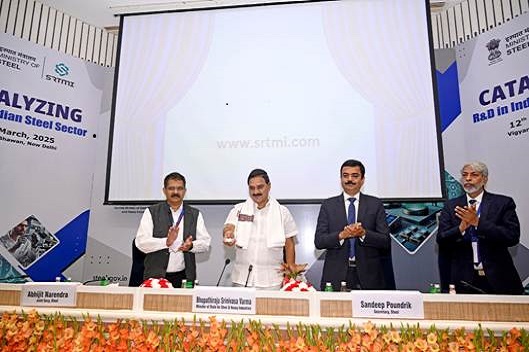RCap Administrator seeks to reconstruct Reliance Capital into 4 core investment companies

Mumbai, Oct 19 In a surprise move, the Reliance Capital (RCap) Administrator has proposed to change the whole structure of RCap as a core investment company (CIC).
The proposal to change the structure, that too at an advanced stage of the bidding process, has come as a big surprise to many.
According to sources, the Administrator has proposed to reconstruct RCap CIC into four different CICs, and has also written to the Reserve Bank of India (RBI) to seek its views and approval on the new structure.
As per the proposal, the Administrator wants to reconstruct RCAP CIC into four different CICs. CIC-1 will comprise Reliance General Insurance Company (RGIC), while the second CIC will own Reliance Nippon Life Insurance Company (RNLIC).
Sources disclosed that the third CIC will have all other businesses of RCap, including Reliance Securities, ARC, private equity, investment, real estate etc.
The fourth CIC will house Reliance Commercial Finance and Reliance Home Finance.
The sole objective of reconstructing RCap CIC into four CICs is to help select bidders of RCap's insurance businesses circumvent the IRDAI guidelines related to the five-year lock-in period.
As per the extant IRDAI guidelines, equity contribution of promoters and other investors, including private equity funds, in an insurance company will have a lock-in period of five years at the time of granting the final approval.
According to the legal view given by AZB and Partners, the legal advisor to the Administrator, the IRDAI guidelines related to lock-in period of five years will not apply to the new proposed structure.
Currently there are four companies in fray for RCap's general insurance and life insurance ventures - Piramal, Zurich, Advent Private Equity and Aditya Birla Capital.
The circumvention of five-year lock-in period will help companies like Advent Private Equity to exit the insurance venture at any time.
The new proposed structure has also received the approval of a three-member advisory committee of RCap Administrator, comprising ex-State Bank of India DMD Sanjeev Nautiyal; ex-Axis Bank DMD Srinivasan Varadarajan; and Praveen P. Kadle, ex-MD and CEO of Tata Capital.
As per the rules, the RBI does not allow more than one CIC in a company, hence to reconstruct four CICs out of Reliance Capital CIC would need the central bank's prior approval.
According to the RBI, a CIC is a non-banking financial company (NBFC) which carries on the business of acquisition of shares and securities and holds not less than 90 per cent of its net assets in the form of investment in equity shares, preference shares, bonds, debentures, debt or loans in group companies.
As per the current CIRP process, Reliance Capital bidders have two options. Under option 1, they can bid for Reliance Capital at a CIC level, as a going concern.
Under Option 2, Reliance Capital's multiple businesses have been divided into eight different clusters. The key clusters are: Investment in Reliance General Insurance and Reliance Health Insurance, investment in Reliance Nippon Life Insurance, investment in Reliance Asset Reconstruction, investment in Reliance Securities, Reliance Financial, Reliance Wealth and Reliance Commodities, and investment in Real Estate.
Reliance Capital Administrator has also written to RBI informing the latter about the 90-day extension granted by NCLT Mumbai to complete the resolution process by January 31, 2023.




















